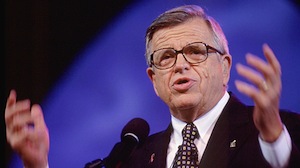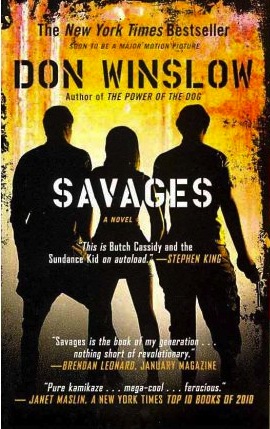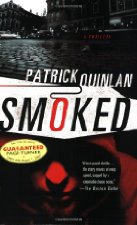From 1981-1993, I was editor of our denominational magazine, and wrote a monthly column called “Randompokes.” I used my May 1989 column to announce my engagement to Pam. I came across the column last night while doing research for a history book. I thought readers might get a kick out of it.
When it comes to my love life, the United Brethren church is filled with false prophets.
I’ve been dating this girl for three-and-a-half years. Her name is Pam Mize, HC Class of ’84, and she’s a staff accountant for a firm in Fort Wayne (halfway to CPAdom, and maybe all the way there after she takes the exam again this month). Three-and-a-half years is a long time to date the same person, and it’s a pretty good indication that there is a certain amount of mutual attraction.
So, everyone has assumed that we’re perfect for each other, that we should get married, that we will get married, that it is our destiny preordained from Creation, that the angels will rejoice and sing hosannas as soon as I pop the question. Which, being interpreted, means:
The sum total of Humanity has been trying to get me married off.
The false prophets arise at holidays. Like Christmas. Every December, people predict that I will put a ring under Pam’s tree. “I just know he’ll give her a ring this year.”
Ditto for Valentines Day, Easter, Pam’s birthday.
“Steve’s going to propose this time. I’m certain of it. I can feel it.”
Thanksgiving, Memorial Day, Halloween.
“This is it. He’s going to propose.”
Labor Day, Columbus Day, Secretary’s Day, Groundhog Day.
“The time is right. I just know it’ll be this holiday.”
Woe unto you false prophets! You have been proven wrong again and again, yet you persist in your ways! A truckload of woes be upon your doorstep!
My coworkers, friends, and relatives were devastated when, once again, Christmas and New Year’s passed, and Pam’s finger remained diamondless. They were so sure the time was right. Presidents’ Day faded, and they pinned their hopes on Valentines Day.
“It’s Valentines Day for sure. Gotta be! I predict.”
On Valentines Day, various people asked me:
“Is this the day you make your announcement?”
“This would be a great opportunity to ask Pam to marry you.”
“You’re going to propose today, aren’t you?”
My standard answer: “Not a chance.”
Everyone predicted that I would propose on Valentines Day. But I refused to be predictable.
I waited until the next day.
That’s right Steve Dennie, confirmed and contented bachelor, staunch defender of the single life, is going to tie the knot, take the plunge, bite the dust, go for it. July 22. This final prophecy will be fulfilled, and then Christ can return….
Christians pretend to endorse singleness, and praise singles for the large amount of time they give to ministry and service. But once an eligible opposite enters the picture and marriage becomes a possibility, people suddenly change tunes. Forget about contented singleness and devotion to ministry. Marriage is a higher calling, a “blessing from God.” It’s better.
With this emphasis, too many people get married to marriage. They desire the state of marriage because they think—and everyone around them confirms—that marriage is necessary in order to be complete, fulfilled, happy, accepted. It is status quo. They want marriage so badly that they’ll make compromises and take shortcuts in order to “ascend” to marriage. The result is a lot–a lot–of bad marriages within the church. And because of our unhealthy exaltation of marriage, we have only ourselves to blame.
Too often, marriage is a result of two incomplete singles joining to form an incomplete marriage. I attended college with a lot of people like that. I decided a long time ago that I would avoid such persons. If I married, it would be to someone who had learned to be happy and productive as a single.
That’s Pam. She doesn’t need me. She has her own career, her own identity. Like me, she is a complete single in Christ.
I have greatly enjoyed being single. In fact in some ways I am being dragged clawing and screaming into marriage, because I treasure all the benefits of singleness.
I love not having to work my schedule around anyone else. I don’t have to be home at 5:30 because supper is ready, and don’t have to report to anybody if I’ll be late.
I love being able to devote so much of my time to my career. I can work until the early morning hours or even pull an all-nighter to meet a deadline, and I don’t have to feel guilty about neglecting anyone at home, because there isn’t anyone at home (except Maddie, my cat, and she sleeps all the time, so what does she care?).
I love eating what and when I want to eat with nobody around to scold me for not eating my vegetables.
I love solitude. For some singles, solitude translates into loneliness. But it fits my temperament
I love being able to prioritize job and church above family, since there isn’t any family.
I love not being responsible for anyone else’s well-being and happiness. Eliminates a lot of pressure and worry.
I love being perfectly content with a merely above-adequate home, with fairly good furniture and bare walls. Nobody else’s pride is at stake. It’s just me and Maddie, and we’re both easy to please.
I love being able to spend an entire evening reading a book or watching a couple good movies.
I love going into town on the spur of the moment to eat or shop or see a movie—without checking to see what another person wants to do.
I love being detached from the materialistic rat-race. Some people say singles are more self-centered, because they have only themselves to worry about. But I think that’s rubbish. From what I’ve seen, Christian singles are generally far less caught up in things than married people. We like nice clothes and nice (littler) cars, but that’s about it. Many, instead of spending money on spouse and children, give a larger proportion of their income to the church and others; ditto for their time.
These years of singleness have been wonderful years of growth and service. But God is directing me down a different path now, and though there is some clawing and screaming, there is also plenty of pulling and “Take me, I’m yours.” On July 22, I will make a lateral move, exchanging my single life for an equally good married life, during which I will continue growing as a person and as a Christian.
I know what you’re thinking: “Maybe Steve shouldn’t go through with this wedding. It doesn’t sound like he’s too crazy about the idea.”
Don’t get me wrong. I am crazy about getting married, because I’m crazy about Pam. I love her deeply. It’s a love built on common interests, shared values, commitment to Christ, and an intense friendship which evolved and matured over a period of five years. Plus a whole lot of “I can’t live without you.”
I’m in love with the single life, but I’m also in love with a girl named Pam. The twain met, and the girl won. And I’m not complaining.


 Colson said he was often criticized for not getting strongly involved in fighting abortion. He agreed that it was a terrible evil. However, he said, God gives different people different agendas. The agenda he’d been given was prison ministry, and he had thrown himself fully into that agenda. He applauded those who crusaded against abortion. But, he said, “That’s not the agenda God gave me.”
Colson said he was often criticized for not getting strongly involved in fighting abortion. He agreed that it was a terrible evil. However, he said, God gives different people different agendas. The agenda he’d been given was prison ministry, and he had thrown himself fully into that agenda. He applauded those who crusaded against abortion. But, he said, “That’s not the agenda God gave me.”
 I read Exodus 19 the other night, and found something curious.
I read Exodus 19 the other night, and found something curious. I knew without a doubt that I would love “Fun & Games” (June 2011). I’d already read three other books by Duane Swiercyznski, all action-packed and very twisted in a fun-funny way. “Fun & Games” fit right in with the rest, and satisfied all my expectations. As I expected.
I knew without a doubt that I would love “Fun & Games” (June 2011). I’d already read three other books by Duane Swiercyznski, all action-packed and very twisted in a fun-funny way. “Fun & Games” fit right in with the rest, and satisfied all my expectations. As I expected. I found Smoked (2006) at Half-Price Books, and I more than got my money’s worth. Three years ago, bombmaker Smoke Dugan made off with $2.4 million, and his employers want it back. He disappeared, but now has been located in Maine.
I found Smoked (2006) at Half-Price Books, and I more than got my money’s worth. Three years ago, bombmaker Smoke Dugan made off with $2.4 million, and his employers want it back. He disappeared, but now has been located in Maine.
 I’m doing the One Year Bible readings (works great on my Nook), and am just finishing Genesis.
I’m doing the One Year Bible readings (works great on my Nook), and am just finishing Genesis.


